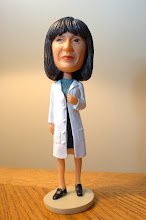 I originally started this conversation on my post dated 11-20-08, but this topic just keeps reappearing, so I'm going to delve a bit deeper today.
I originally started this conversation on my post dated 11-20-08, but this topic just keeps reappearing, so I'm going to delve a bit deeper today.Natural. Everyone can define this word - right? Per Webster, natural means: "existing in or produced by nature". Pretty simple & straightforward. So why is it that the FDA and USDA are having such trouble creating a working definition for this term? Perhaps it is because natural, when pertaining to foods, is not so easily defined. You see, there is a lot of grey area; there are many natural things, including chemicals, out there that you wouldn't want to be eating, so the dictionary definition simply won't work.
Let's start with the FDA. Way back in the early 1990's, they were petitioned to create a definition of "natural" for the industry to use. But in January of 1993, the FDA declined to establish a formal definition of natural and instead gave us this informal definition we've been using ever since. Natural means "nothing artificial or synthetic has been included in, or has been added to, a food that would not normally be expected to be in the food." [58 Fed. Reg. 2302, 2407 (January 6, 1993)]. Hence, the FDA decided not to attempt to restrict the use of the term natural except for added color, synthetic substances, and flavors.
Here's why this gets interesting. The FDA's Food Labelling and Standards department reviews the use of the term "natural" on a case-by-case basis since this statement of policy is just an advisory opinion and not a regulation. Or in plainer English, while companies and courts follow the FDA's opinion, it does not constitute federal law. One case currently being fought in the US courts is the against Snapple Beverage Corp. for their use of "All Natural" on their beverages containing high fructose corn syrup (HFCS).
In April 2008, the FDA's office of Nutrition, Labeling and Dietary Supplementation, stated that HFCS, due to the manufacturing process, would not qualify for a "natural" labeling term. But in July 2008, after clarification from one of the manufacturers about the process used to create HFCS, the FDA reversed its decision and declared that HFCS (when produced by the process submitted) can be considered "natural". (If anyone wants details on the processes involved, send me an email & I'll explain) Snapple argued that the FDA has authority regarding the naming & labeling of its drinks and the original court (New Jersey US District Court) found in favor of Snapple. Unfortunately, the US Court of Appeals for the Third Circuit last month reversed this decision and sent it back down for further review; their opinion is that the FDA's opinion has no force of law.
Unfortunately, there have been a number of other lawsuits (Ben & Jerry's, Cadbury Schweppes, Kraft, Arizona Beverage Co., etc.) also surrounding the use of the term "natural" (although not all concerning the use of HFCS). So what does this mean to consumers? Well, the industry is hoping it may force the FDA to adopt a formal policy regarding the definition of the term "natural". And the place they may start is with the USDA definition; but that will be my next post - so be sure to check back soon!





No comments:
Post a Comment